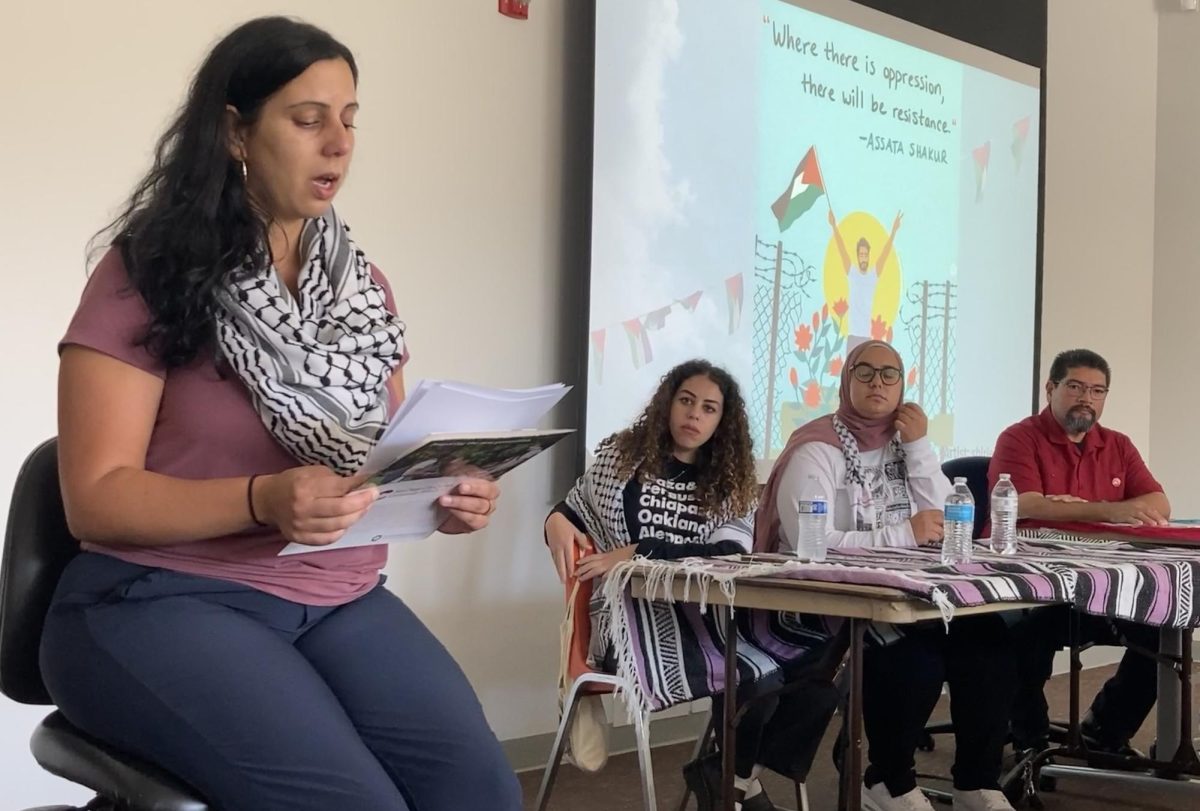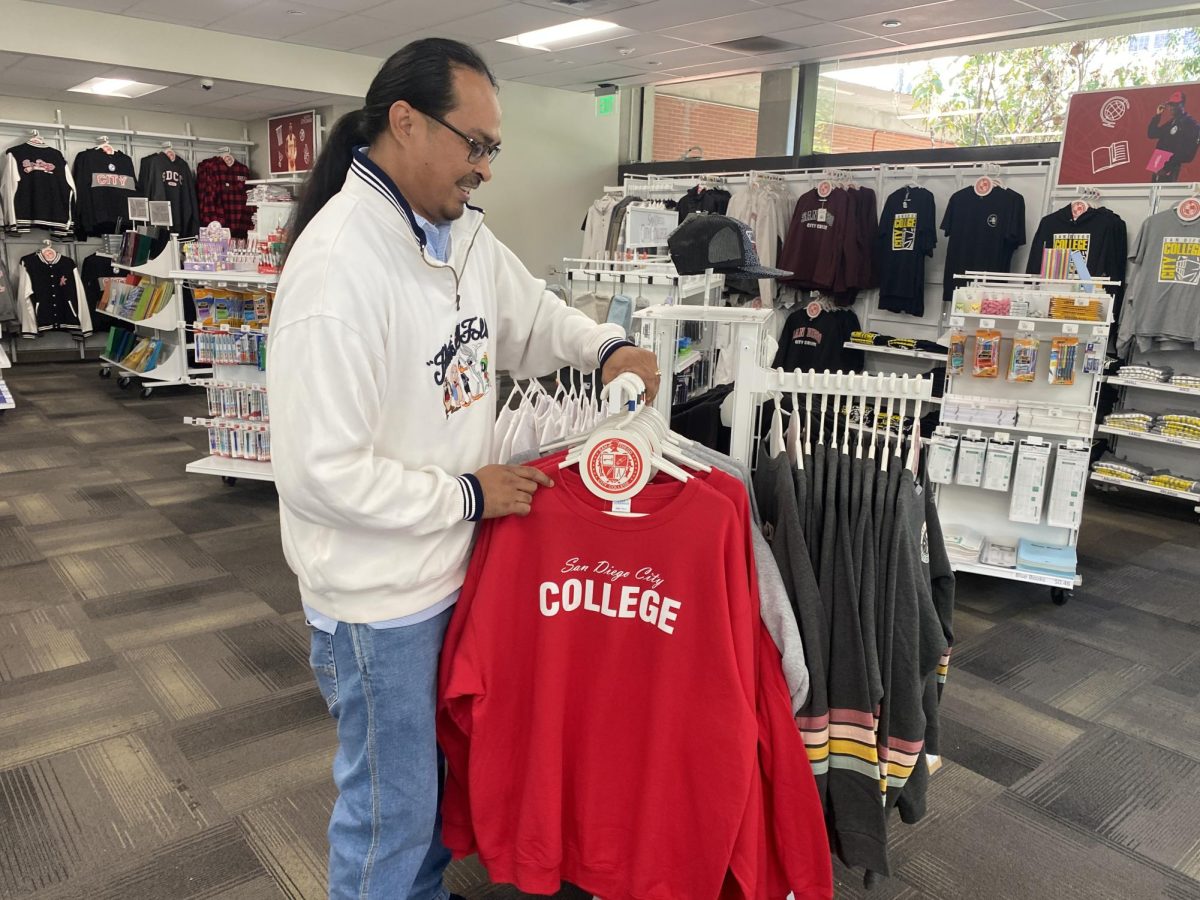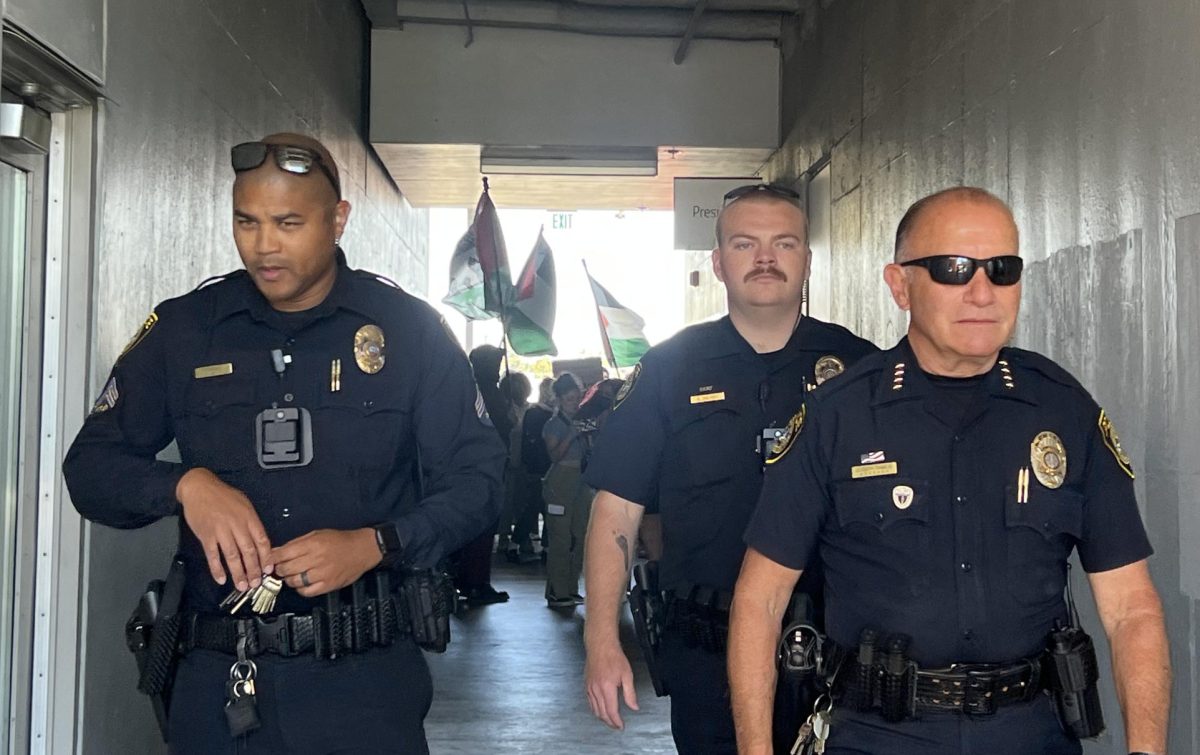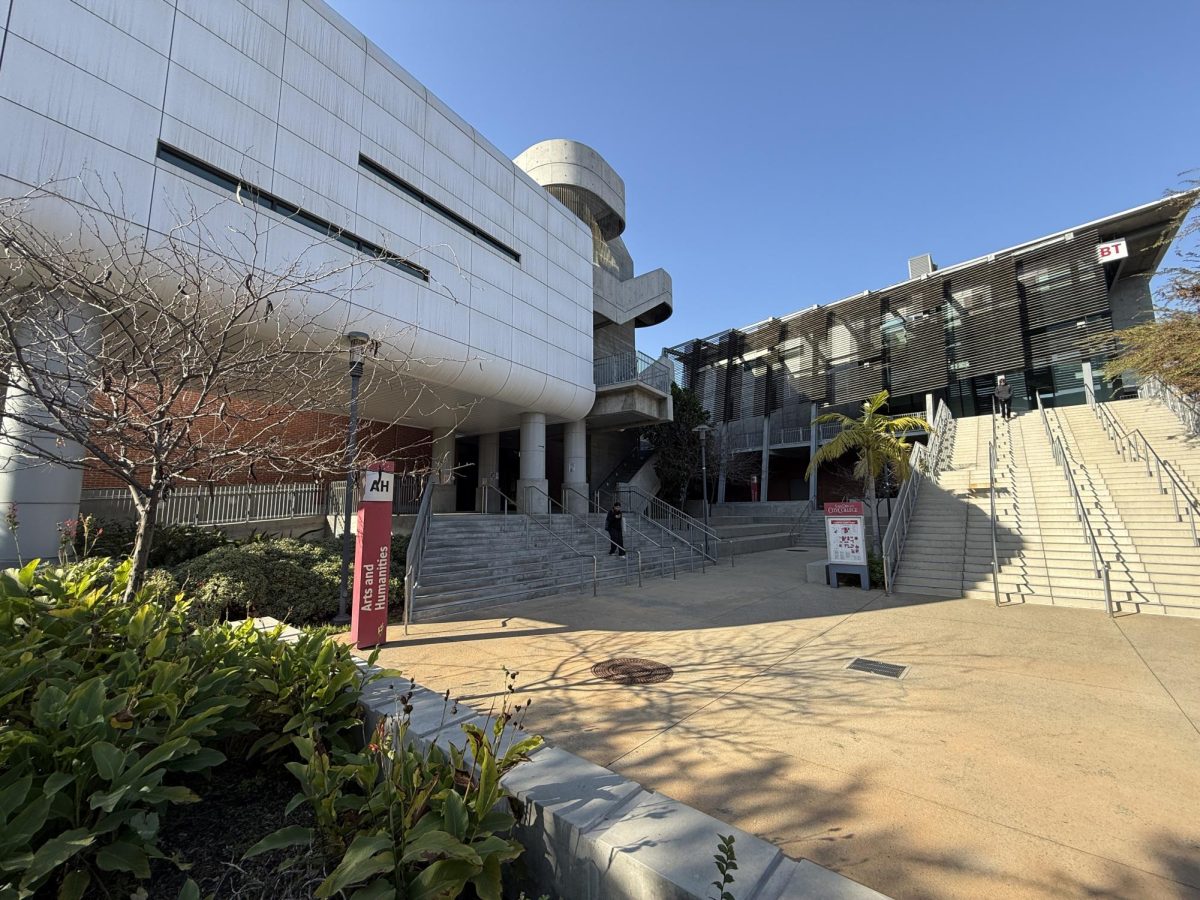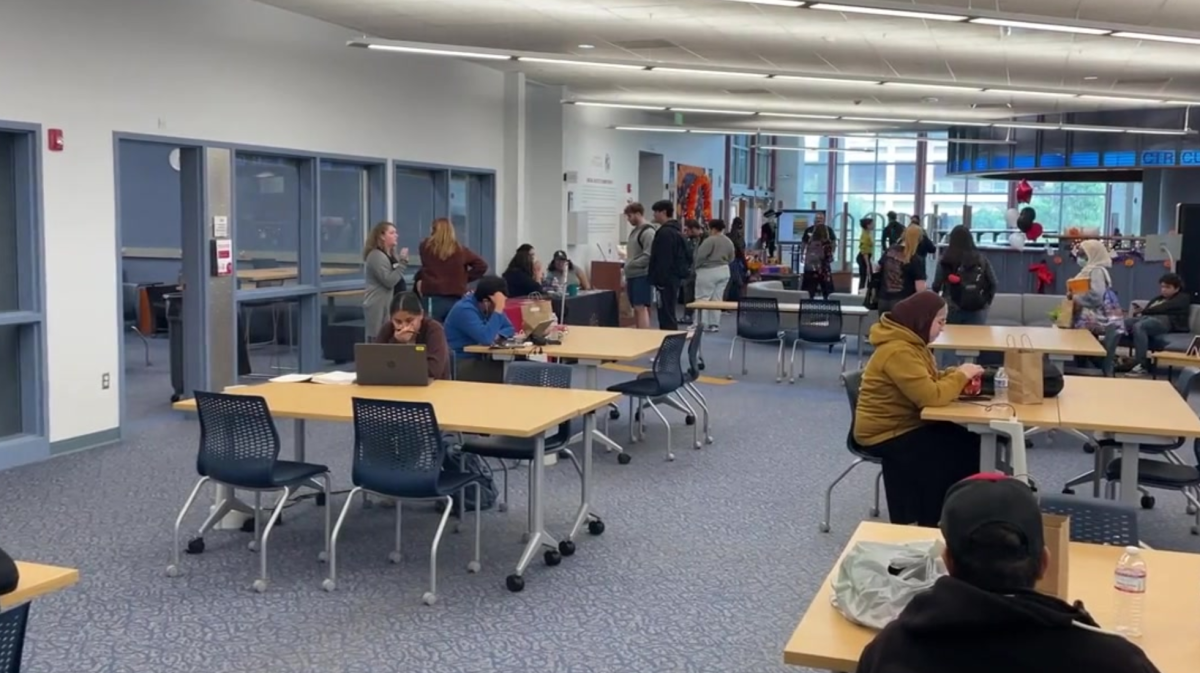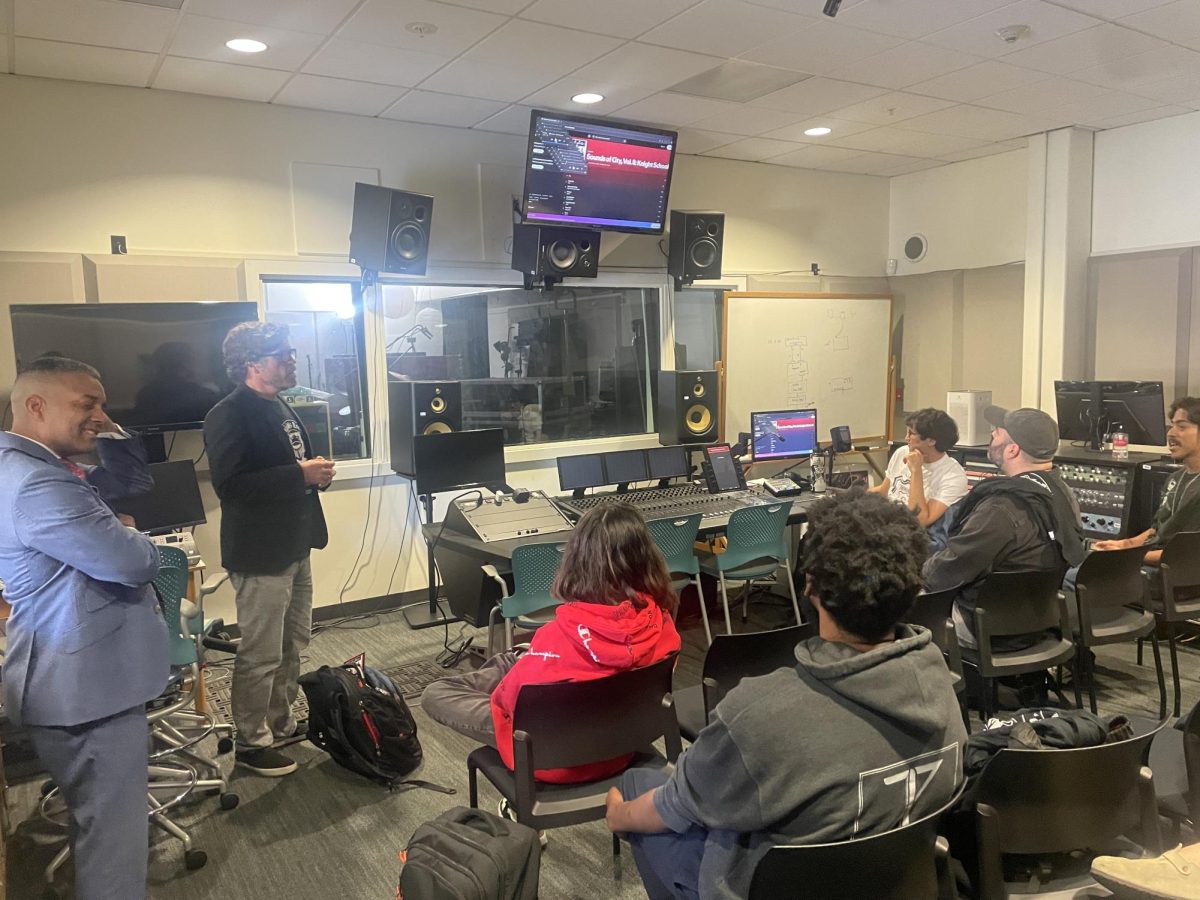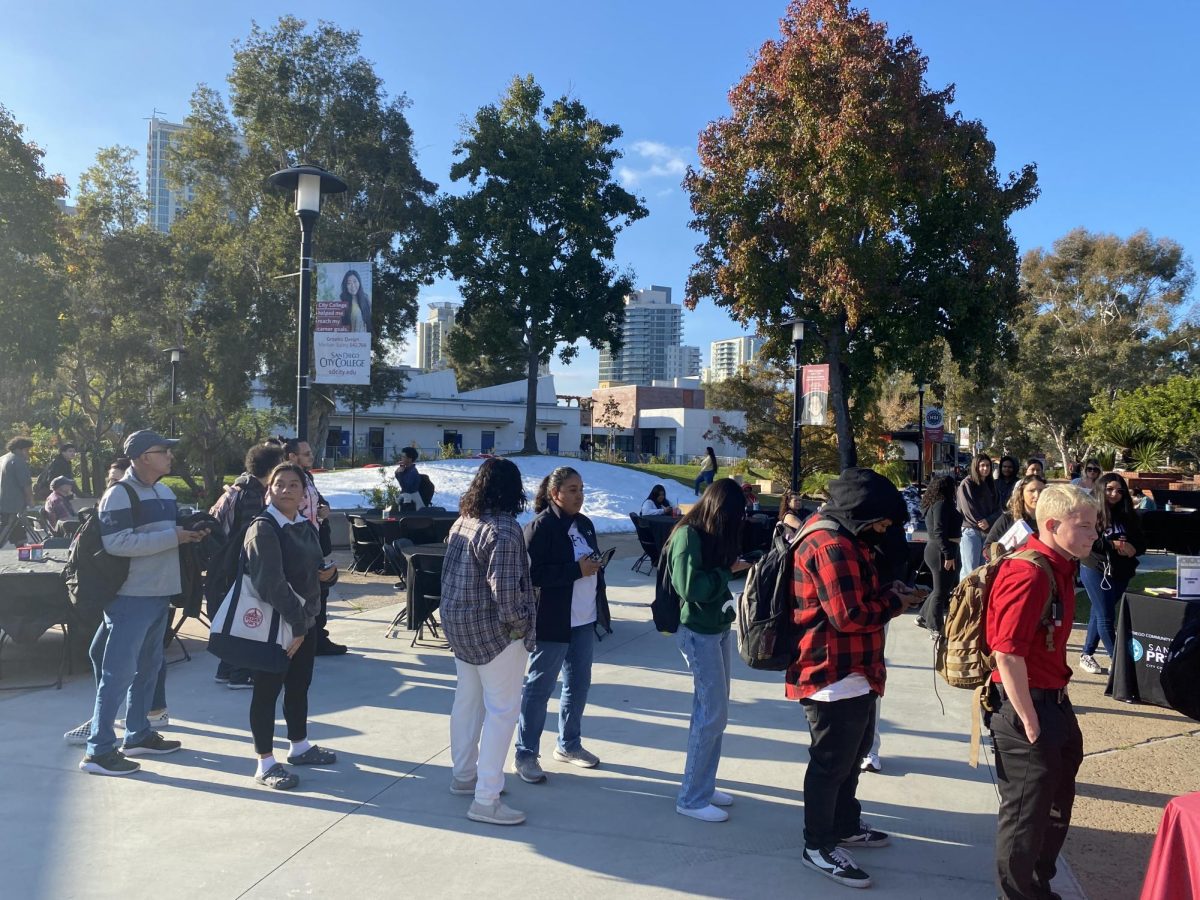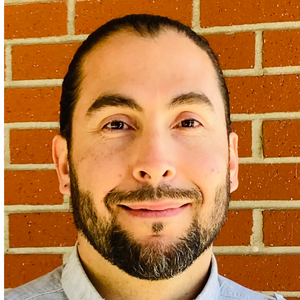Mona Alsoraimi wept as she read an introductory poem in front of a packed lecture hall at San Diego City College.
“Dedication,” the poem written by Palestinian-American poet Suheir Hammad, spoke of a man standing atop a mountain in Jordan overlooking the Palestinian homeland he ached to return to, but the Palestinian was eventually murdered by an Israeli soldier before ever stepping back on his home soil.
The poem continued with the man’s niece, five years later, standing on that same mountain with the same sensations, experiencing the same yearning.
“I chose that poem because it reminds me very much of my mother’s emigration from Palestine to Jordan and being so close to a land that was theirs, that was home, but not being able to go back,” said Alsoraimi, who is an English department professor at City College, “and now 40-something years later, she still has not been able to return.”
The event, “Emergency Teach-in: Solidarity Across Borders,” was attended by approximately 180 City College students and organized by Chicano/a Studies professor América Martinez on Oct. 18 to provide a comprehensive context to the military onslaught the Palestinian people of Gaza are currently enduring by the Israeli armed forces.
Read City College student reflections on the Middle East conflict
The continuing attack on Gaza, which has faced an Israeli blockade since 2007, continues with over 5,000 Gazans killed by U.S.-funded Israeli missile strikes, according to an Oct. 23 U.N. report on the conflict.
Palestinian women and children have made up more than 62% of the fatalities, while more than 15,273 people have been injured, with an acute humanitarian crisis escalating for Gazans, according to the report.
The bombing campaign is being waged in response to the Oct. 7 attacks by Hamas inside of Israel which killed up to 1,400 Israeli civilians and military personnel, according to the same UN report.
The teach-in sought to inform the City College community about the impact of the colonial occupation in Palestine, Palestinian resistance and ways people could be in solidarity with Palestinians in their struggle for liberation, according to the event flier.
Yasmeen and Jeanine, two local Palestinian organizers who reserved their last names for safety purposes, attended as panelists along with Benjamin Prado, Undersecretary of Union Del Barrio, a community organization in Barrio Logan.
Jeanine gave an in-depth history of the roots of the 75-year Palestinian occupation.
“This isn’t a vacuum what we’re operating in and what we’re seeing today,” she said.
She went on to delineate to the attendees the ideology that was born of the idea of creating a Jewish nation-state by Zionist historical figures like Theodor Herzl (1860-1904) and entities like the World Zionist Organization.
The Zionist settler colonial project eventually went on to displace over a million Palestinians under a post-Holocaust, post-World War II partition plan backed by the U.S. and British governments in 1947 and enforced by the UN, according to Jeanine.
“And this is what we mean when we say it’s a settler colonial project, that it’s a project that’s built on the ethnic cleansing of people,” Jeanine said.
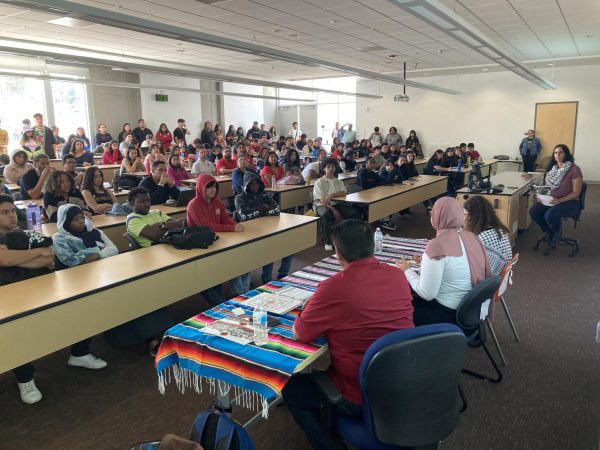
Growing up under Israeli occupation for 16 years, Yasmeen told of her experience living under colonial rule in the West Bank and the stark contrast in the reality she witnessed upon moving to the U.S.
“When you’re in survival mode you can’t process, you can’t heal, you can’t move on from what is being done to you because it’s constantly happening,” Yasmeen said. “And the reality of people who are living in Gaza is much worse.”
“There’s an actual genocide being committed and there’s an active ethnic cleansing of people in Gaza, and across Palestine as a whole,” she said.
During those 16 years, and to this day, Yasmeen has not been able to visit the place in occupied Palestine where her grandparents were expelled from, “because it’s been wiped out completely,” she said.
Jennifer Flores, a third-semester fashion design student, attended the teach-in and said the Palestinian panelists’ personal testimonies came across as powerful ways to fully understand the issue.
“Other genocides have happened because people look away,” Flores said. “But it actually holds a lot of power to keep talking about it and posting about it because that’s the way people keep interacting with it and it doesn’t just fade away.”
Prado began his presentation by expressing gratitude for the opportunity to speak on the parallels between the Palestinian resistance movement and the work Union Del Barrio as a national liberation organization does to undo the effects of colonialism on indigenous people in North America.
“It’s the same settler colonialism that has occupied and built colonial borders on this land that is now building colonial and has built colonial borders in Palestine,” Prado said.
Jeanine made a further correlation during their discussion.
“There is an apartheid wall (surrounding Gaza), it’s the same wall that’s built by the company that’s building the wall right now on the US-Mexico border,” Jeanine said.
Toward the end of the discussion, the panelists described to the City College attendees how they can get involved in efforts to stop the Israeli campaign.
Ongoing protests organized by the Palestinian Youth Movement and a LinkTree account to pressure elected officials were among the actions Yasmeen and Jeanine presented.
For the diaspora of Palestinians living in the U.S., the effects of Israel’s decades-long occupation and escalating bombardments take on a personal meaning.
“That poem that Dr. Mona shared, is a very real reality for many Palestinians who were forced to leave in 1948, and died never returning to their homeland,” Jeanine said.


